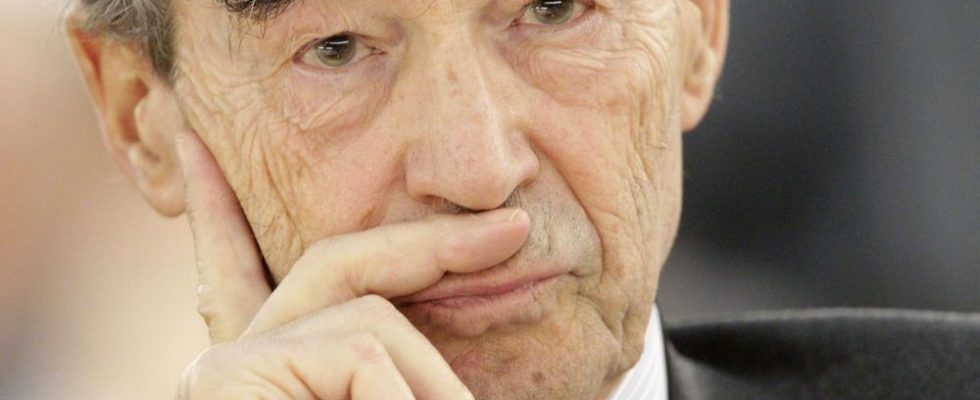Figure of the Mitterrand years, brilliant lawyer and former Minister of Justice, Robert Badinter, known for having abolished capital punishment, died on the night of Thursday to Friday, we learned from his collaborator, Aude Napoli. The former president of the Constitutional Council was 95 years old.
Initially criticized for having defended causes that went against the grain, he built a reputation as an independent humanist, to the point of being considered a moral authority. “I tried to transform justice, make it more human,” he said in November 2023 in an interview on the show “La Grande Librairie”. Did I succeed? To be judged.”
Minister of François Mitterrand
Minister of Justice under socialist president François Mitterrand, he introduced the law of October 9, 1981 which abolished the death penalty, in a France then predominantly in favor of this supreme punishment.
He subsequently invested, until his “last breath of life”, for the universal abolition of capital punishment. With the execution, “the crime changes sides”, underlined this son of a furrier, born in Paris on March 30, 1928 in a Jewish family who emigrated from Bessarabia (now Moldova).
This thin and elegant man with thick black eyebrows, defender of a France “in the service of freedoms and human rights”, took his thirst for justice from an adolescence marked by the Second World War.
In 1942, when he was only 14 years old, his father was arrested before his eyes in Lyon. He died during deportation in the Sobibor concentration camp (Poland), while his family took refuge in Savoy.
Married since 1966 to the philosopher Elisabeth Badinter
After studying literature and law, and graduating from Columbia University as a scholarship holder, Robert Badinter became a lawyer at the Paris bar and at the same time pursued a career as a university teacher. Co-founder with Jean-Denis Bredin of a prestigious business law firm, he defends personalities, big names in the press or business, and occasionally pleads in court.
Divorced from an actress married in the 1950s, this upper-class man has been married since 1966 to the philosopher Elisabeth Badinter, née Bleustein-Blanchet, with whom he had three children.
It was when he failed, in 1972, to save Roger Bontems from the guillotine, an accomplice in a murderous hostage-taking, that he moved “from intellectual conviction to militant passion” against the death penalty, he testified. he says in his book “Abolition”. Five years later, he spared the death penalty for child murderer Patrick Henry, who was sentenced to life imprisonment.
Five other men escaped the scaffold thanks to him. “We entered the courthouse through the main door, and after the verdict, when the accused had saved his head, we often had to leave by a hidden staircase” to avoid the anger of the crowd, he said. -he.
Having become Minister of Justice (1981-1986), the man who was considered by some as the “assassins’ lawyer” was the target of all attacks when he voted for the abolition of the death penalty. “I have never had the impression of such solitude,” he said.
He works to improve living conditions in prisons
Robert Badinter also works to improve living conditions in prisons. He voted for the abolition of high security districts, that of exceptional courts, the decriminalization of homosexuality, access for French litigants to the European Court of Human Rights, a law on compensation for victims of accidents.
In 1983, he obtained from Bolivia the extradition of Klaus Barbie, the former head of the Gestapo in Lyon. Convicted of crimes against humanity, Barbie was sentenced in 1987 to life in prison.
Robert Badinter, who has always rejected “vigilante hatred”, will support in 2001 the release for reasons of age of the former police prefect and minister Maurice Papon, 90, convicted of complicity in crimes against humanity.
After leaving the government, he chaired the Constitutional Council for nine years (1986-95). Socialist senator from 1995 to 2011, he had the satisfaction of seeing the abolition of the death penalty included in the Constitution in 2007.
Still very active, he is working on a reform of the UN in the 2000s and on the reform of the labor code during the five-year term of François Hollande. This man of culture is the author of numerous works and even an opera libretto. One of his latest books, “Idiss” (2018), is dedicated to his maternal grandmother, born in “Yiddishland” of the Tsarist empire.
